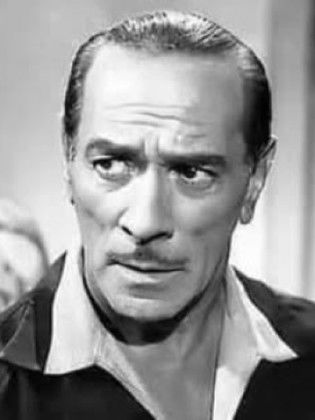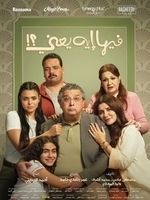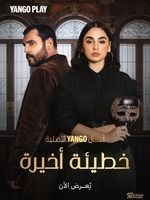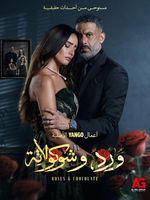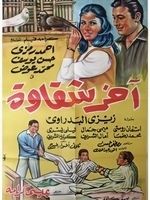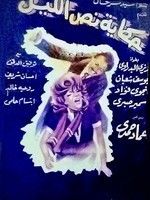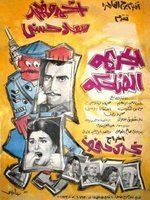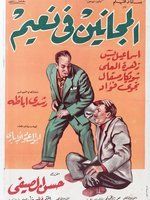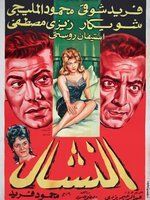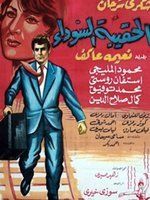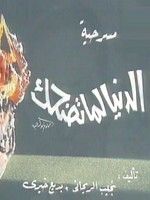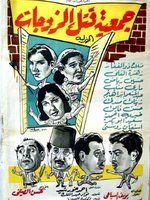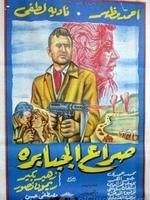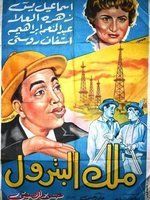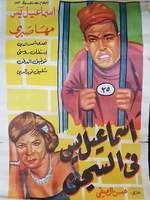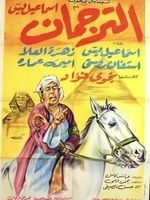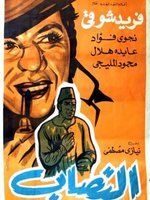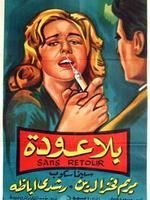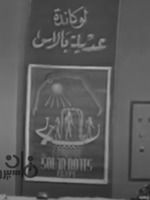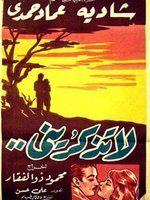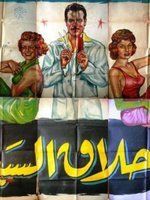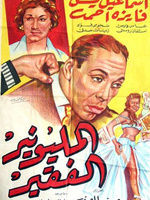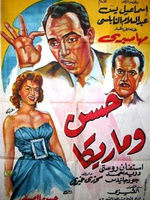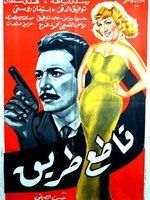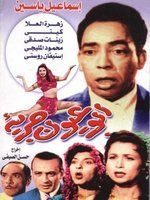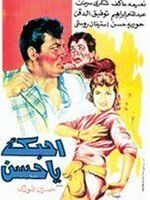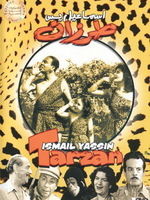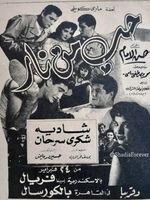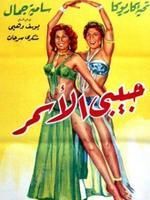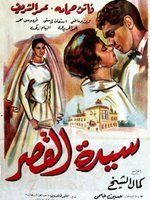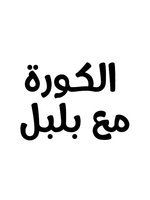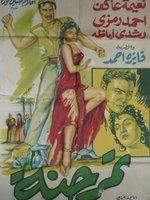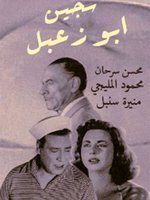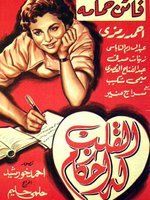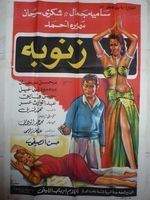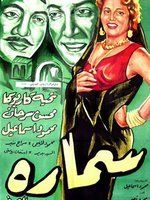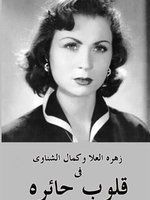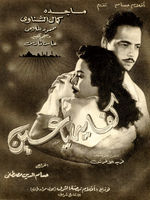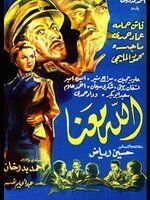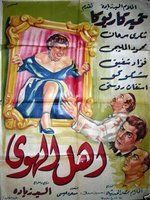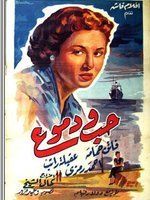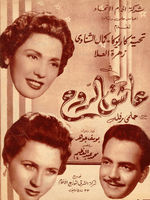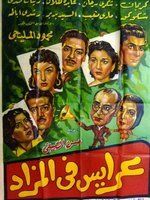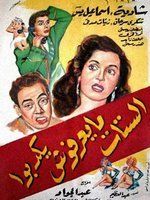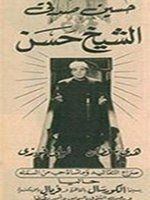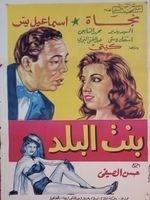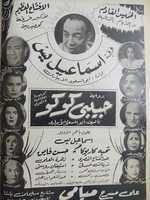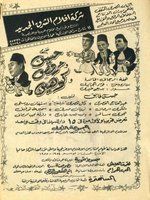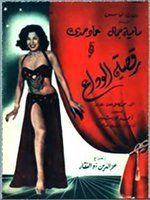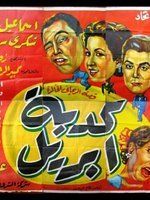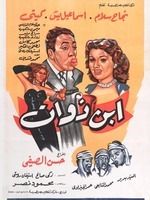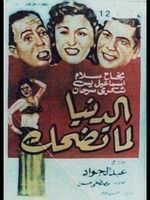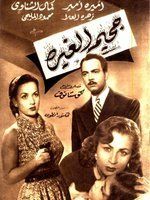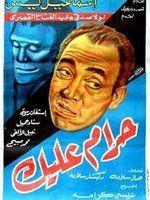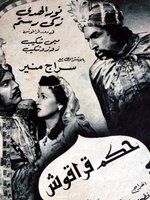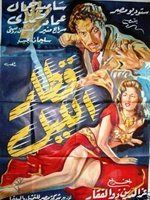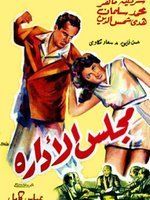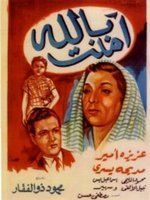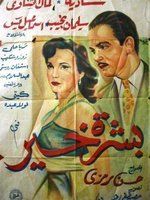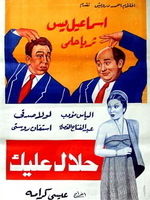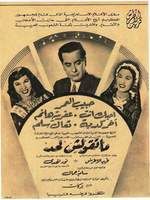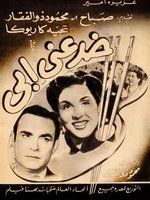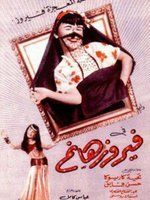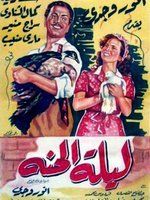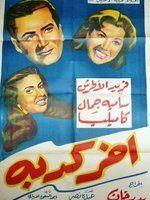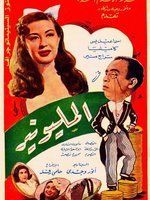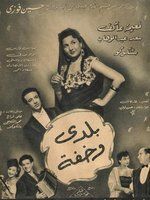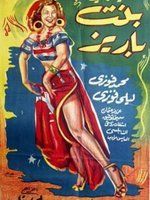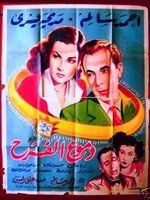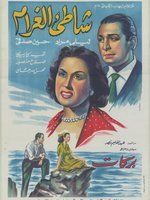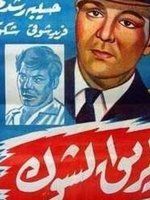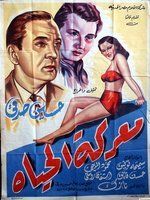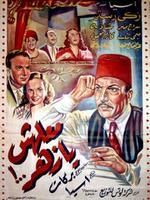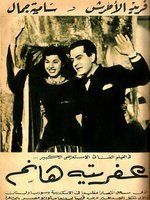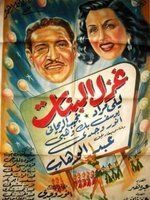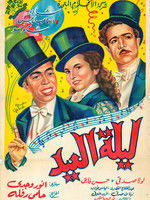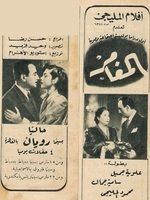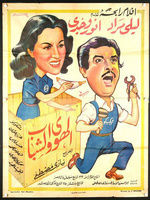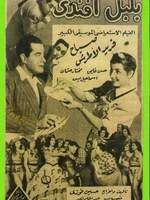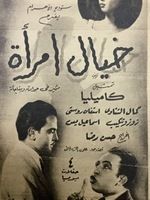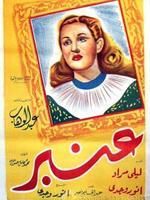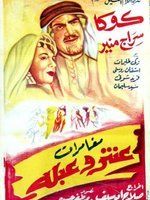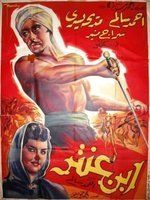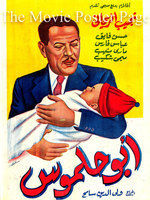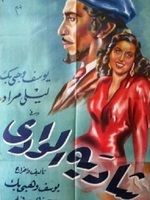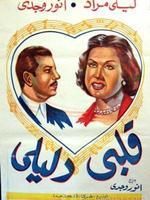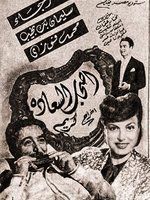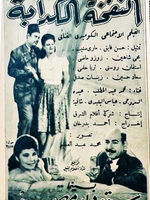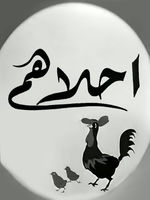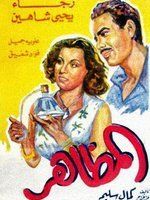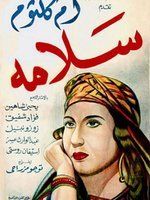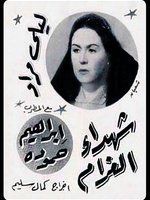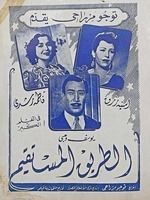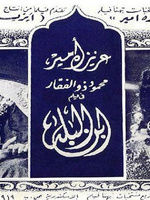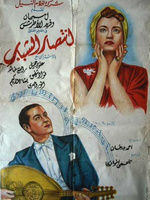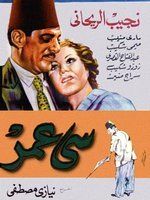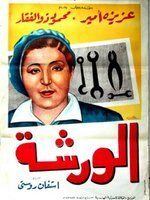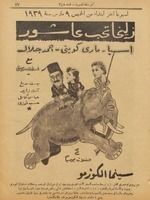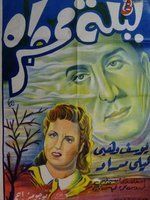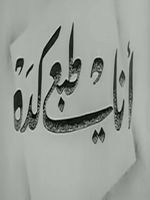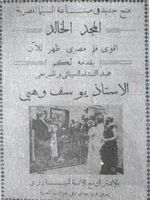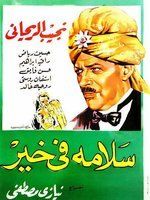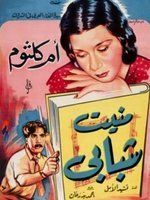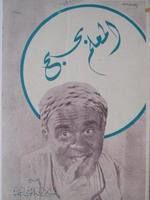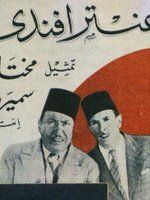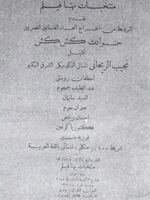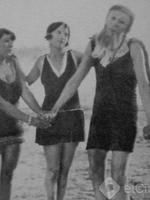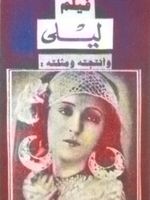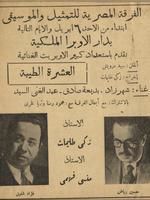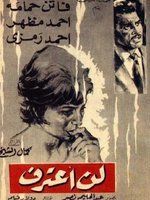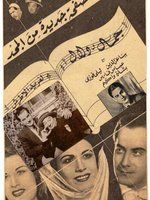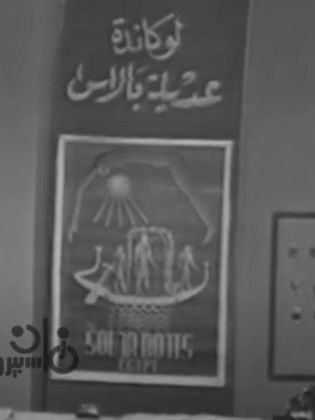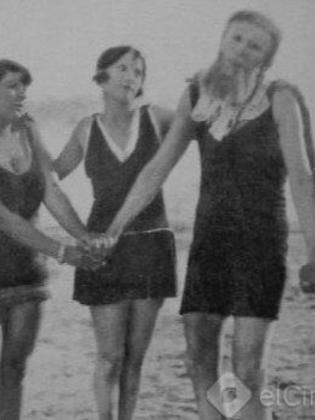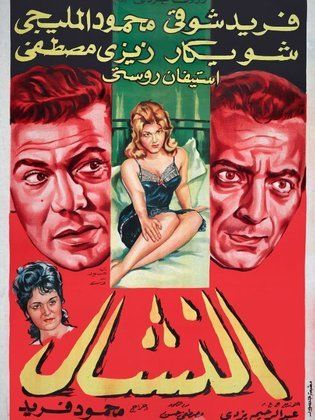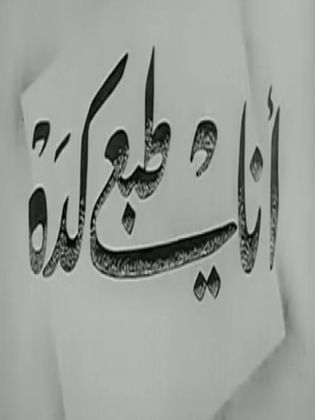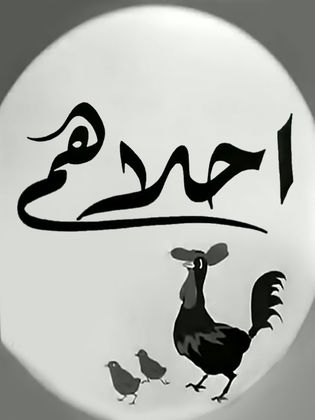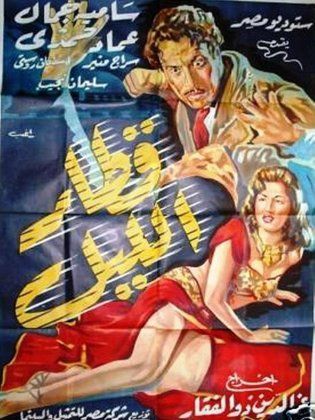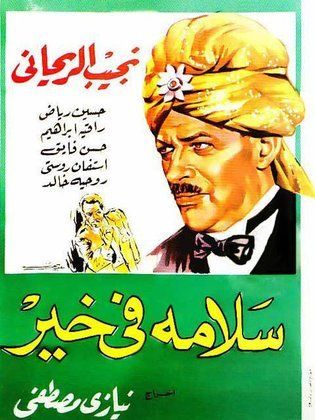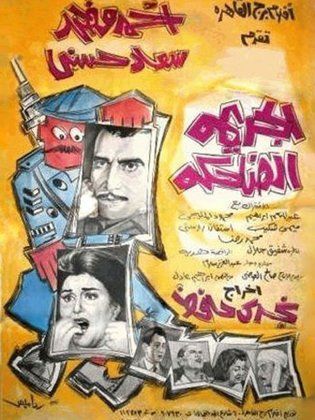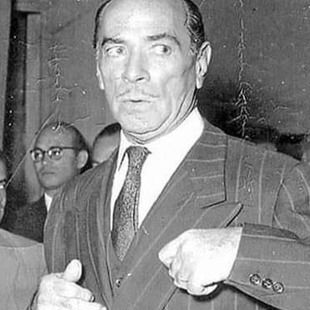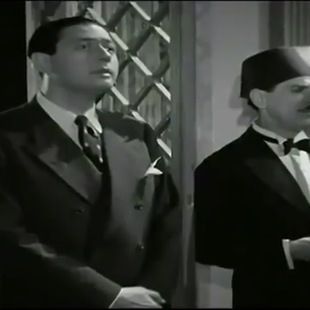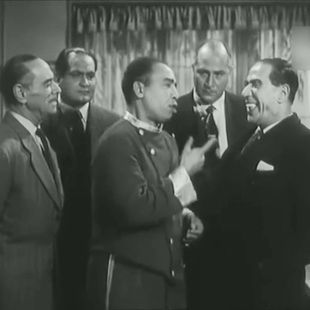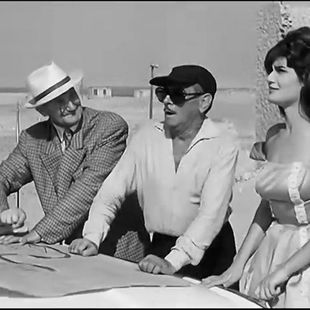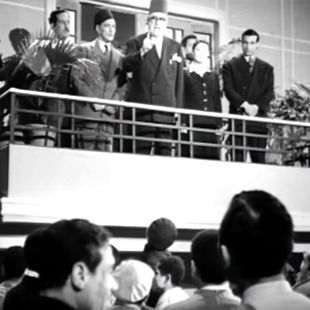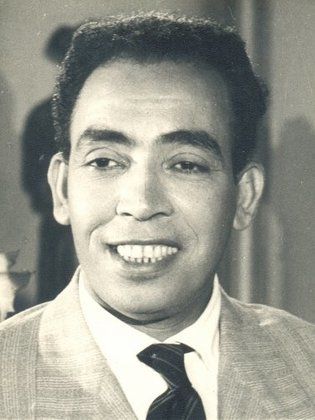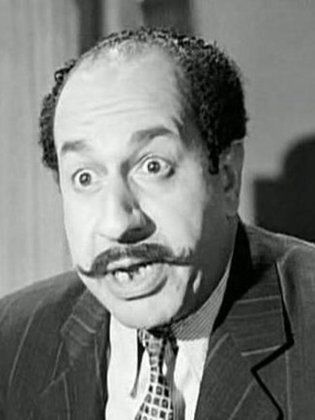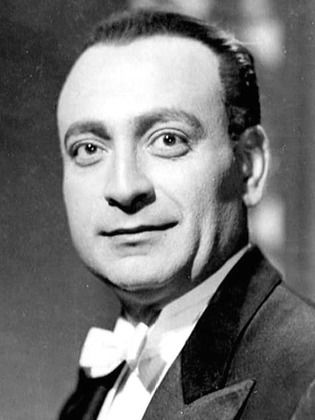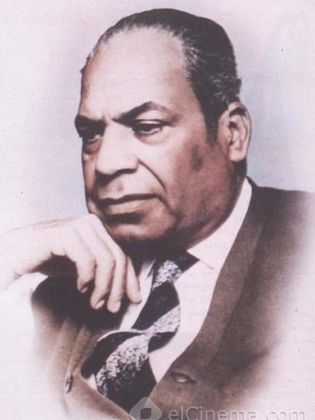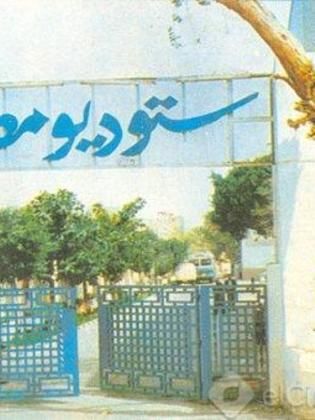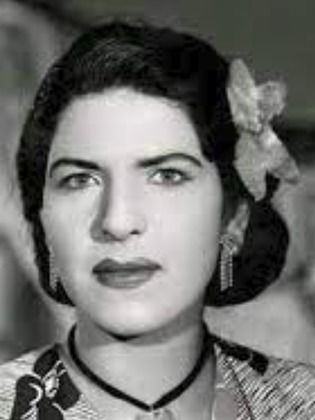Stephan Rosty (1891 - 1964) استيفان روستي
Biography
Stéphane de Rosti was born in Alexandria. His father, Stéphane Rosti senior, an Austrian Baron, who married an Italian, bought her palace in Shoubra and decided to live there. As the mother was about to give birth to her child, the father returned to Vienna in obedience to his...Read more Aristocratic family. When Stéphane Rosti was born, she gave him his father’s name. He lived with his mother in Shoubra, and went to al-Khedeweyya school. When he got his school certificate, he decided to try to meet his father. At the same time, he got in touch with an Austrian ballet dancer in “Teatro Abbas” with whom he travelled to Vienna. He managed to meet his father there but eventually fell from favor because of his relation with the dancer, in addition to his Artistic tendencies. It was in Europe that Stéphane met the director Muhammad Kareem, was studying cinema in Germany at the time, who helped him to return to Egypt. In 1917, Rosti met Aziz Eid who was about to form his own theatrical troupe. Later, Rosti together with Nagueeb al-Rehaany presented the operetta “Al-‘ashara al-tayyeba i.e. Ten of hearts (1920)”. It was his activity in Ramsis troupe that made his colleague ‘Azeeza Ameer decide to let him complete what was considered the first Egyptian feature film “Nedaa Allaah i.e. The call of God (1927)”, eventually changed to “Laila” in 1927. The Turkish director Wedaad ‘Orfy was supposed to direct the film but he clashed with Azeeza Ameer. In addition to “Laila”, Rosti directed five films and was co-writer of six others. However, his reputation rests heavily on his acting career. Even though he was famous for playing the villain, he used to interpret such roles with a unique sense of humor that made the audience sometimes actually like and sympathize with his character. He succeeded in combining the villain and comedian, to become a comic villain. He used to take part in the writing of his character and add some words that usually became a feature of his character. It is a measure of his success that some of his lines are still remembered until this very day. Would always be remembered also for his unique accent and tone of voice especially when playing a foreigner. In 1936, Stéphane Rosti married an Italian lady called Marina, they stayed together until he died on 12 May 1964, while shooting the last scenes of “Hekaayaat noss al-leil i.e. Midnight tales”.
-
- Nationality:
- Egypt
-
- Date of Birth:
- 16 November 1891
-
- Birth Country:
- Italy
-
- Death Country:
- Egypt
Watch Online (Sponsored By Yango Play)
-
-
- Feeha Eh Yaani
- 2025 - Movie
-
-
- One Last Sin
- 2025 - Series
-
-
- 2 Qahwa
- 2025 - Series
-
-
- Ward w Shokolata
- 2025 - Series
-
-
- Al Shater
- 2025 - Movie
-
-
- Rocky El Ghalaba
- 2025 - Movie
-
Actor (128)
-
-
- Akher shaqawa
- 1964 - Movie
-
-
- Hikayat nasi allayl
- 1964 - Movie
-
-
- Eifrit Khatibi
- 1964 - Play
-
-
- Kol El Reggala Keda
- 1964 - Play
-
-
- Al Garima Al Dahika
- 1963 - Movie
-
-
- El Maganeen Fi Naeem
- 1963 - Movie
More (122)
-
-
- The Pickpocket
- 1963 - Movie
-
-
- alhubu limaa yufarqie
- 1962 - Play
-
-
- Alhaqibat alsawda
- 1962 - Movie
-
-
- Al Dunya Lama Tadhak
- 1962 - Play
-
-
- Jameiat qutil alzawajat alhazalia
- 1962 - Movie
-
-
- Seraa El Gababera
- 1962 - Movie
- (Dany)
-
-
- Kanas Fi Garden City
- 1962 - Play
-
-
- Maamalsh Hisabha
- 1962 - Movie
-
-
- Malik albitrul
- 1962 - Movie
-
-
- Ismail Yassine in Prison
- 1961 - Movie
-
-
- Al-Torgoman
- 1961 - Movie
-
-
- Al Habeb Al Madroob
- 1961 - Play
-
-
- The Conman
- 1961 - Movie
-
-
- Bila A'wda
- 1961 - Movie
-
-
- Binsiuwn Adila
- 1961 - TV
-
-
- Don't Remember Me
- 1961 - Movie
-
-
- Ya El Daf'a Ya Al Habs
- 1961 - Play
-
-
- Halaq Al Saydat
- 1960 - Movie
-
-
- My Mother-in-Law on TV
- 1960 - Play
-
-
- Almilyunayr alfaqir
- 1959 - Movie
-
-
- Love, money and marriage
- 1959 - Play
-
-
- Hassam we Mareca
- 1959 - Movie
-
-
- Qotaa Tareeq
- 1959 - Movie
-
-
- 'abu euyun jariya
- 1958 - Movie
-
-
- 'Ahbak ya hasan
- 1958 - Movie
-
-
- 'Iismaeil ys tarazan
- 1958 - Movie
-
-
- Hubun min naar
- 1958 - Movie
-
-
- Hubibi al'asmar
- 1958 - Movie
-
-
- harami li'awal mara
- 1958 - Play
-
-
- The Lady of the Palace
- 1958 - Movie
-
-
- Ayz Ahb
- 1958 - Play
-
-
- El Koraa Mae Bulbul
- 1957 - Play
-
-
- Tamuru hana
- 1957 - Movie
-
-
- Gozy Kadab
- 1957 - Play
-
-
- An Hour for Your Heart
- 1957 - Series - Radio
-
-
- Sageen Abu Za'abal
- 1957 - Movie
-
-
- El Qalb Loh Ahkam
- 1956 - Movie
-
-
- Ana Eayza Milyunir
- 1956 - Play
-
-
- Rokn Al Mar'a
- 1956 - Play
-
-
- Zanuba
- 1956 - Movie
-
-
- Samara
- 1956 - Movie
-
-
- Qoloob Ha'erah
- 1956 - Movie
-
-
- Dry Your Eyes
- 1956 - Movie
-
-
- Al Set Ayza Keda
- 1955 - Play
- (Jamil)
-
-
- Allah Ma'na
- 1955 - Movie
-
-
- Ahl Al-Hawa
- 1955 - Movie
-
-
- Love and Tears
- 1955 - Movie
-
-
- sahib aljalala
- 1955 - Play
-
-
- Eashiq alruwh
- 1955 - Movie
-
-
- Earayis fa almizad
- 1955 - Movie
-
-
- aldulawea
- 1954 - Play
-
-
- Al-Settat Mayea'rafoush Yekdebo
- 1954 - Movie
-
-
- El Sheikh Hassan (Lelet El Qadr)
- 1954 - Movie
-
-
- The Country Girl
- 1954 - Movie
-
-
- My Love, Coco
- 1954 - Play
-
-
- Hasan wamurqas wakuhin
- 1954 - Movie
-
-
- Raqsat Al-Wada'a
- 1954 - Movie
-
-
- Kadhabat 'abril
- 1954 - Movie
-
-
- No One Takes Anything
- 1954 - Play
-
-
- Ibn Zawat
- 1953 - Movie
-
-
- Al Dunya Lama Tadhak
- 1953 - Movie
-
-
- Jahim Al-Gheera
- 1953 - Movie
-
-
- Haram ealayk
- 1953 - Movie
-
-
- Hakam qaraqush
- 1953 - Movie
-
-
- Qitar allayl
- 1953 - Movie
-
-
- Majlis al'iidara
- 1953 - Movie
-
-
- Believing in God
- 1952 - Movie
-
-
- Boshret Kheir
- 1952 - Movie
-
-
- Halal ealayk
- 1952 - Movie
- (Farid)
-
-
- mtqwlsh lihadi
- 1952 - Movie
-
-
- Khada'ani Aby
- 1951 - Movie
-
-
- Fayaruz hanim
- 1951 - Movie
-
-
- Leilet Elhenna
- 1951 - Movie
-
-
- Last Lie
- 1950 - Movie
-
-
- Al-Milyuneir
- 1950 - Movie
-
-
- Baladay wakhifa
- 1950 - Movie
-
-
- The Girl from Paris
- 1950 - Movie
-
-
- Demoaa El Farah
- 1950 - Movie
-
-
- Shate'e Al-Gharam
- 1950 - Movie
-
-
- Tareeq Elshoak
- 1950 - Movie
-
-
- Maerakat alhaya
- 1950 - Movie
-
-
- Ma'lish ya Zahr
- 1950 - Movie
-
-
- Agaza Fi Gohanam
- 1949 - Movie
-
-
- Afreta Haneem
- 1949 - Movie
-
-
- Ghazl Al Banat
- 1949 - Movie
-
-
- Leilet El Eid
- 1949 - Movie
-
-
- El Moghameer
- 1948 - Movie
-
-
- El Hawa Wil Shabab
- 1948 - Movie
-
-
- Bulbul Effendi
- 1948 - Movie
- (Aziz)
-
-
- The Shadow of a Woman
- 1948 - Movie
-
-
- Anbar
- 1948 - Movie
-
-
- Moghamrat Antr Wabla
- 1948 - Movie
-
-
- Son of Antar
- 1947 - Movie
-
-
- Abu Halmoos
- 1947 - Movie
-
-
- Singer of the Valley
- 1947 - Movie
-
-
- Qalbi dalili
- 1947 - Movie
-
-
- Ashab El Saadah
- 1946 - Movie
-
-
- The Phony
- 1946 - Movie
-
-
- Ahlahom
- 1945 - Movie
-
-
- El Mazaher
- 1945 - Movie
-
-
- Salama
- 1945 - Movie
-
-
- Shohadaa El Gharam
- 1944 - Movie
-
-
- The Straight Road
- 1943 - Movie
- (Ibrahim)
-
-
- The Noble Man
- 1942 - Movie
-
-
- Aintisar alshabab
- 1941 - Movie
-
-
- Si Omar
- 1941 - Movie
-
-
- Alwarsha
- 1940 - Movie
-
-
- Zolayhkh tohb Ashor
- 1939 - Movie
-
-
- On a Rainy Night
- 1939 - Movie
-
-
- Ana Tabaay Keda
- 1938 - Movie
-
-
- Immortal Glory
- 1937 - Movie
-
-
- Salama Fi Kheer
- 1937 - Movie
-
-
- Muniat shababii
- 1937 - Movie
-
-
- Mr. Bahbah
- 1935 - Movie
-
-
- Antar Afandy
- 1935 - Movie
-
-
- Mr. KishKish's Adventures
- 1934 - Movie
-
-
- Egyptian Pound
- 1931 - Play
-
-
- Saheb El Saada Kechkech Beh
- 1931 - Movie
-
-
- Elbahr Bedhak
- 1928 - Movie
-
-
- Laila
- 1927 - Movie
-
-
- The Lord's Call
- 1926 - Movie
-
-
- Al Eshra Al Tayiba
- 1920 - Opera
-
-
Writer (11)
-
-
- Maamalsh Hisabha
- 1962 - Movie
- (Scriptwriter)
-
-
- Lan Aatareff
- 1961 - Movie
- (Story)
-
-
- Qotaa Tareeq
- 1959 - Movie
-
-
- The Country Girl
- 1954 - Movie
-
-
- Ibn Zawat
- 1953 - Movie
-
-
- Qitar allayl
- 1953 - Movie
- (Scriptwriter)
More (5)
-
-
- Jamal wadilal
- 1945 - Movie
- (Writer)
-
-
- The Noble Man
- 1942 - Movie
- (Story & Screenplay)
-
-
- Antar Afandy
- 1935 - Movie
- (Story & Screenplay)
-
-
- Laila
- 1927 - Movie
- (Scriptwriter)
-
-
- The Lord's Call
- 1926 - Movie
- (Author)
-
-
Director (11)
-
-
- Al Habeb Al Madroob
- 1961 - Play
- (Director)
-
-
- Ya El Daf'a Ya Al Habs
- 1961 - Play
- (Director)
-
-
- My Mother-in-Law on TV
- 1960 - Play
- (Director)
-
-
- Ahlahom
- 1945 - Movie
- (Director)
-
-
- Jamal wadilal
- 1945 - Movie
- (Director)
-
-
- The Noble Man
- 1942 - Movie
- (Director)
More (5)
-
-
- Alwarsha
- 1940 - Movie
- (Director)
-
-
- Antar Afandy
- 1935 - Movie
- (Director)
-
-
- Saheb El Saada Kechkech Beh
- 1931 - Movie
- (Director)
-
-
- Elbahr Bedhak
- 1928 - Movie
- (Director)
-
-
- Laila
- 1927 - Movie
- (Director)
-
-
Editor (1)
-
-
- Laila
- 1927 - Movie
- (Editor)
-
Known for
(According to views)
Watch it on
More details
Stéphane de Rosti was born in Alexandria. His father, Stéphane Rosti senior, an Austrian Baron, who married an Italian, bought her palace in Shoubra and decided to live there. As...Read more the mother was about to give birth to her child, the father returned to Vienna in obedience to his Aristocratic family. When Stéphane Rosti was born, she gave him his father’s name. He lived with his mother in Shoubra, and went to al-Khedeweyya school. When he got his school certificate, he decided to try to meet his father. At the same time, he got in touch with an Austrian ballet dancer in “Teatro Abbas” with whom he travelled to Vienna. He managed to meet his father there but eventually fell from favor because of his relation with the dancer, in addition to his Artistic tendencies. It was in Europe that Stéphane met the director Muhammad Kareem, was studying cinema in Germany at the time, who helped him to return to Egypt. In 1917, Rosti met Aziz Eid who was about to form his own theatrical troupe. Later, Rosti together with Nagueeb al-Rehaany presented the operetta “Al-‘ashara al-tayyeba i.e. Ten of hearts (1920)”. It was his activity in Ramsis troupe that made his colleague ‘Azeeza Ameer decide to let him complete what was considered the first Egyptian feature film “Nedaa Allaah i.e. The call of God (1927)”, eventually changed to “Laila” in 1927. The Turkish director Wedaad ‘Orfy was supposed to direct the film but he clashed with Azeeza Ameer. In addition to “Laila”, Rosti directed five films and was co-writer of six others. However, his reputation rests heavily on his acting career. Even though he was famous for playing the villain, he used to interpret such roles with a unique sense of humor that made the audience sometimes actually like and sympathize with his character. He succeeded in combining the villain and comedian, to become a comic villain. He used to take part in the writing of his character and add some words that usually became a feature of his character. It is a measure of his success that some of his lines are still remembered until this very day. Would always be remembered also for his unique accent and tone of voice especially when playing a foreigner. In 1936, Stéphane Rosti married an Italian lady called Marina, they stayed together until he died on 12 May 1964, while shooting the last scenes of “Hekaayaat noss al-leil i.e. Midnight tales”.
- Nationality:
- Egypt
- Date of Birth:
- 16 November 1891
- Birth Country:
- Italy
- Death Country:
- Egypt

